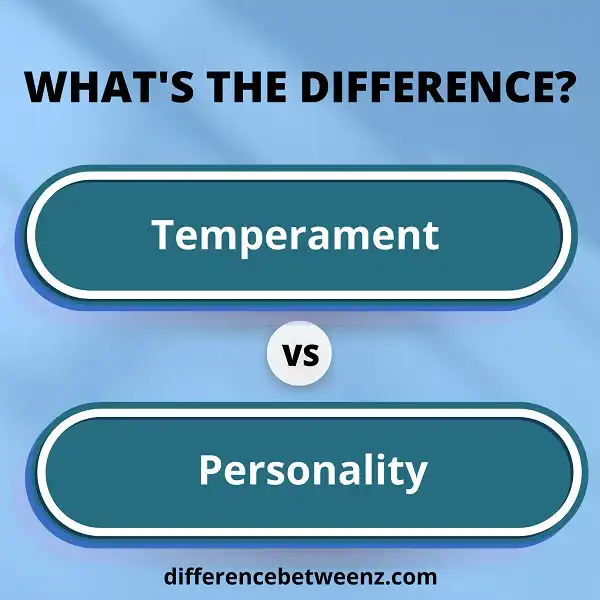There is a lot of confusion between temperament and personality. While they are both important aspects of our lives, they are distinctively different. In this blog post, we will explore the difference between temperament and personality and how they both play an important role in our lives. Finally, we will discuss the benefits of understanding your own temperament and personality.
What is Temperament?
Temperament refers to a person’s natural disposition or inborn combination of mental and emotional traits. Temperament is thought to be mostly genetically determined and is relatively stable throughout life. It is important to note that temperament is different from mood or personality, which can change over time. While moods are usually temporary states that are influenced by external factors, personality is more deeply rooted and tends to be more enduring.
That said, all three concepts are interrelated, and each can influence the others. For example, someone with a naturally cheerful disposition may be more likely to see the glass as half-full, even during difficult times. On the other hand, someone with a more pessimistic temperament may be more likely to become depressed in response to negative life events. Temperament is just one of many factors that contribute to a person’s overall behavior and psychological makeup.
What is Personality?
Personality refers to the unique combination of psychological qualities that make up an individual’s distinctive character. Personality traits are relatively stable over time and across situations. However, they are also shaped by one’s environment and experiences. Psychologists have long debated how best to describe and measure personality. The most popular approach is the five-factor model, which identifies five broad personality dimensions: extraversion, agreeableness, conscientiousness, neuroticism, and openness to experience.
Personality assessments can be used for a variety of purposes, including predicting job performance, understanding criminal behavior, and diagnosing mental health conditions. In addition, personality research has uncovered many interesting findings about the relationship between personality and wellbeing. For example, studies have shown that people who are higher in extraversion and agreeableness tend to be more satisfied with their lives.
Difference between Temperament and Personality
Temperament and personality are two concepts that are often used interchangeably, but there are important differences between the two. Temperament refers to an individual’s inherent emotional and behavioral style, which is largely determined by genetic factors. In contrast, personality refers to the characteristics that emerge as a result of an individual’s experiences and their unique way of processing and responding to information. While temperament is relatively fixed, personality is more flexible and can change over time. As a result, temperament tends to be more stable across different situations, while personality is more variable. Ultimately, both temperament and personality play important roles in shaping who we are as individuals.
Conclusion
Temperament and personality are two important constructs in psychology, but they are often confused with one another. In this blog post, we’ve outlined the key differences between these two concepts. We hope this information was helpful and provided some clarity on these two important topics.


